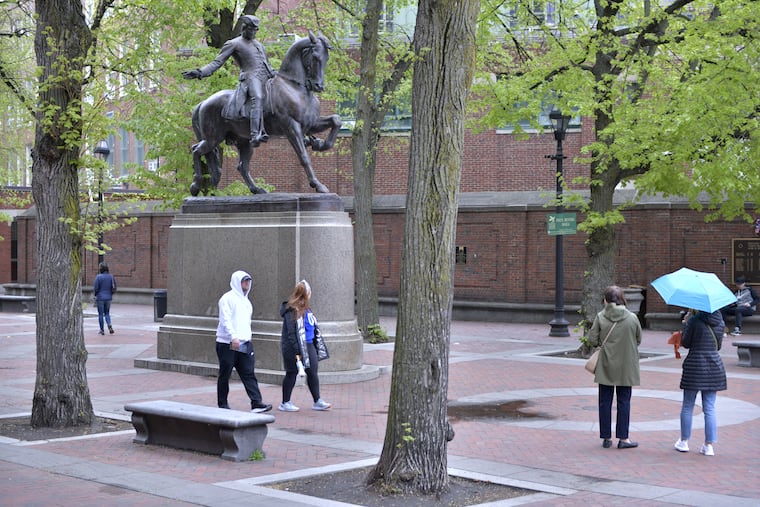Paul Revere’s ride marks its 250th anniversary, highlighting the power of ordinary citizens in opposing tyranny.
ARLINGTON, Mass. — As one drives through this historic New England town, it becomes evident that every residence displays an American flag, a symbol of patriotism and collective memory. This particular stretch of road is steeped in history, having been traversed 250 years ago by renowned figures Paul Revere and William Dawes, who rode to Lexington and Concord to alert local militias of the impending British forces intent on destroying military supplies held by colonial patriots.
The skirmishes that erupted on April 19, 1775, marked a pivotal moment in American history, igniting the Revolutionary War. This rebellion was fueled by the colonists’ discontent with King George III’s refusal to acknowledge their rights under British law. To honor these historic events, reenactors will ride the same routes this week, commemorating the legendary “midnight ride of Paul Revere.” The anniversary of these battlefield victories will be observed on Saturday, coinciding with Patriots’ Day.
However, this year’s celebrations occur against a particularly contentious backdrop, centered around President Donald Trump’s tenure, which some critics argue undermines the rule of law and the core values of American independence. Critics highlight Trump’s frequent disregard for legal processes, exemplified by his unfounded assertions regarding the 2020 election, which he has continuously claimed was stolen. His affinity for authoritarian figures raises concerns about his approach to governance, drawing parallels between his actions and historical abuses of power.
A recent White House event featuring Trump and Salvadoran President Nayib Bukele served as a reminder of the growing influence of authoritarianism within U.S. politics. During this meeting, issues surrounding immigration policy took center stage, particularly regarding the deportation of individuals like Kilmar Abrego Garcia, whose legal challenges underscore systemic flaws within the administration’s practices. Despite a court order for his return, the Trump administration’s response has been criticized as inconsistent with judicial mandates, raising questions about accountability.
This disregard for the judicial system reflects a broader trend of undermining legal norms, paralleling tactics observed in other autocracies. Public discourse surrounding Trump’s punitive approach, including his remarks on expanding the prison system, signals a troubling shift in policy direction that recalls historical struggles against tyrannical governance.
As America approaches the Semiquincentennial next year, it faces a critical juncture. The legacies of figures like Paul Revere serve as reminders of the ongoing fight for justice and representation. As citizens reflect on the courage of their forebearers in the face of tyranny, there is renewed hope that the principles of democracy and legal accountability can be preserved, fostering a robust civic response to today’s challenges.
The pushback against authoritarian leanings is becoming evident through various civic initiatives and legal challenges, illustrating the resilience of American society. As this historical moment is revisited, it is crucial for new leaders to emerge, advocating for constitutional integrity and championing the rights of citizens across the country.






